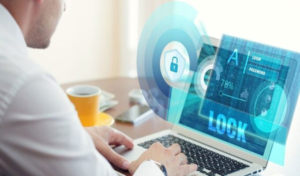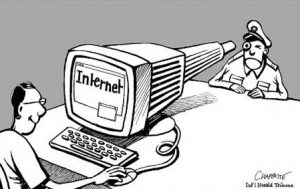Many people are aware of the downsides of modern technological solutions, yet they don’t pay much attention to them. This is more or less choosing to neglect the basics of online privacy.
People often think that privacy-related problems somehow don’t concern them. As a matter of fact, some people also believe that there is nothing that can be done to protect personal information online. However, the statement couldn’t be further from the truth.
There are numerous easy and effective ways of keeping personal data secure online. The most common solutions include changing the IP address, using private browsing modes, VPNs, and external software that monitor and protect data from potential online threats.
If you are a person looking for a way to keep hackers and other intruders away, here you can find the list of the easy tips to protect your privacy online from anywhere in the world.
Use External Protection Systems
No matter if it is for private or business use, if you want to protect your privacy online, you should use an external monitoring system.
There is a countless number of anti-hacking software that can be found in the market these days. Different providers will offer you various features. However, some essential characteristics should remain the same. Most often, they will include:
- Vulnerability assessment
- Real-time monitoring
- Detecting unknown activity
- On the spot alerting
According to customers’ opinions, you could find one of the best security systems at websites such as www.bulletproof.co.uk, https://www.fortinet.com/, or https://www.cisco.com/. Feel free to choose your preferred online privacy protection system based on your needs. Take into account what type of data you want to protect, and why you want to do so.
Find Yourself a Proper VPN
A VPN can turn out to be a lifesaver to anyone trying to protect their online privacy.
VPN stands for Virtual Private Network, and it describes a digital tool that allows your device to connect to the internet through a different server than your own. The software changes your device’s IP address to a different location somewhere far away for your current area.
When traveling abroad, using a VPN is much safer than using public wifi. It lets you gain anonymity, access region-restricted websites, and prevent any unwanted online snooping. With a virtual private network, your online privacy shouldn’t be at stake in a foreign country.
There are numerous VPNs available to choose from. Each of them will keep your device secure in a slightly different way. Additionally, they differ in the fee plans. Pick the one that you want based on your estimated time of VPN usage.
The most common VPNs to use are Expressvpn, NordVPN, and Surfshark.
Set to Private Mode
One of the easiest and best practices to make sure nobody is taking advantage of your personal information online is through using the best privacy settings like private browsing.
This tip also refers to the apps you are downloading online. Think of all the social media profiles that you own and all the personal information that you share there. You are most likely sharing your geolocation, allowing online cookies, and letting the external system manage your passwords. Moreover, you are posting thousands of photos revealing your personal life to anyone interested.
To avoid stalking, snooping, or hacking, make sure you protect your privacy by setting all social media accounts to private. If you do so, you will have all rights reserved to choose who can see your content and who can’t.
Moreover, you will save yourself from being bombarded with personalized advertisements.
Manage Passwords on Your Own
A strong password should include random small and capitalized letters mixed with some numbers. It is no secret that because of the complexity, those strong passwords can be easily forgotten. It is much easier to let the browser remember them all for you.
However, to protect your sensitive personal information, you should remember all your passwords on your own instead of letting the application’s system do the job.
Consider writing all passwords down or creating a digital document with the information.
Conclusion
It is possible to protect your online privacy, sensitive information, and valuable data.
The best practices to maintain online security include setting your devices and social media accounts settings to private mode. Also, use a VPN instead of public wifi when traveling, install an external protecting system, and try to remember your passwords on your own.
Taking those precautions should keep your online privacy at the highest possible level. Moreover, be cautious about the information that you share online.





